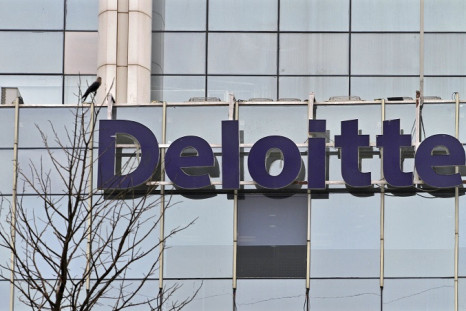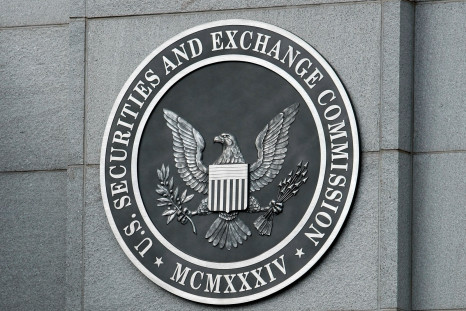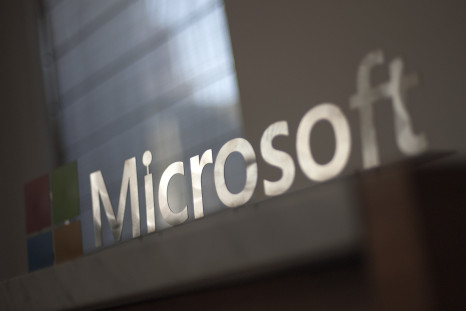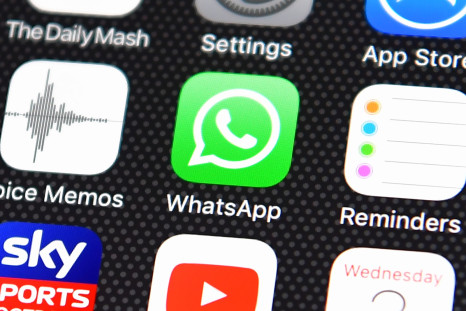More From Jason Murdock
Instagram has announced some big changes are coming to its comments section
Anonymous video reporting and comment blocking is being introduced.
Sep 27, 2017
New era for ATM heists as hackers use malware to steal from machines remotely
Physical access to ATMs is no longer needed to hijack cash, experts warn.
Sep 27, 2017
Android and iOS apps used for stock trading could expose your personal data to hackers
Passwords and account details could be put at risk by weak app cybersecurity.
Sep 26, 2017
'Swept under the rug': Deloitte insider says hackers infiltrated 'entire email database'
Source close to the probe told Brian Krebs the attack was worse than reported.
Sep 26, 2017
New macOS 'High Sierra' bug could let hackers steal your passwords - should you update?
The 'zero-day' vulnerability was found in macOS High Sierra's Keychain function.
Sep 26, 2017
Notorious Android malware that will drain your bank account discovered on Google app store
BankBot Trojan disguised as 'Jewels Star Classic' game had up to 5,000 downloads.
Sep 25, 2017
Deloitte hack: Secret client data hijacked in cyberattack that went 'unnoticed for months'
Hackers were able to access Deloitte's 'global email system' and steal secrets.
Sep 25, 2017
Verizon leak: 'Confidential data' exposed after employee left database unprotected online
Leaked folders allegedly included passwords linked to internal Verison systems.
Sep 25, 2017
What is the TaigaPhone? 'Surveillance-proof' device touted by Kaspersky Lab co-founder
Natalya Kaspersky said the handset is designed for corporate customers.
Sep 25, 2017
Defence contractor guilty of planting 'logic bomb' in US Army computer network
Mittesh Das, 48, planted destructive code into an army computer programme.
Sep 22, 2017
Hewlett Packard Enterprise to slash 10% of global workforce, putting 5,000 out of a job
Company is reportedly seeking to make $1.5bn in savings over the next 3 years.
Sep 22, 2017
Hackers are remotely locking Apple devices and demanding bitcoin payments
Apple iCloud appears has been used to force activate the 'Find My Device' option.
Sep 22, 2017
US SEC reveals it was hacked in 2016, says leaked data likely used for insider trading
Company data from its 'Edgar' system used for 'illicit gain' through trades.
Sep 21, 2017
Rogue reseller: Chinese national pleads guilty to hatching $100m Microsoft piracy scheme
Orland Liu, 37, admitted to playing a key role in the reselling of counterfeit software.
Sep 21, 2017
Are you being watched? FinFisher government spy tool found hiding as WhatsApp and Skype
Malware used by intelligence agencies spotted in 7 countries, experts said.
Sep 21, 2017
WhatsApp rejects British government demand for 'backdoor' access to encryped messages
The news comes as UK PM appeals for technology firms to help combat terrorism.
Sep 20, 2017
Corrupt Barclays banker helped gang launder £16m for Eastern European cybercriminals
NCA officers seized a hand-written "step-by-step guide to money laundering".
Sep 20, 2017
Hackers could open your front door using infrared light in home security cameras
The technique – dubbed 'aIR-Jumper' – can steal passwords and Pin codes.
Sep 20, 2017
Android antivirus app with up to 50 million downloads covertly hijacked users' data
DU Antivirus Security failed to protect its users' information, said Check Point.
Sep 19, 2017
Hackers are now using 'rotating' ransomware that could infect your computer twice
Booby-trapped links were spotted serving up malware that could lock down your files.
Sep 19, 2017
WikiLeaks releases 'Spy Files: Russia' detailing shadowy mass surveillance programme
'Spy Files: Russia' includes documents from inside Russian IT company Peter-Service.
Sep 19, 2017
'Premier league of arms dealers': Pair jailed for using dark web to supply UK gangsters
Khan used the identity 'cheeko412' on the dark web to buy guns and ammo.
Sep 18, 2017
What's happening to bitcoin in China? Markets close as Beijing plans total trading ban
BTC China, Huobi and OKCoin shut as authorities mull over "comprehensive" crackdown.
Sep 18, 2017
CCleaner software hacked to spread 'backdoor' malware to more than 2 million people
Researchers from Cisco Talos found malware was hidden for a month.
Sep 18, 2017
Did China hack Holyrood? 'Senior sources' in Scottish parliament link Beijing to cyberattack
The Scottish parliament computers were targeted by 'external sources' in August 2017.
Sep 18, 2017
'You're a child': Twitter reacts as Trump shares clip of him hitting Clinton with a golf ball
The US president whips up controversy following anti-Clinton retweet.
Sep 17, 2017
'Chemical incident' in South London leaves locals vomiting following mysterious smell
Police investigate occurrence as locals rushed to hospital.
Sep 17, 2017
Facebook and Google have become 'surveillance states' and risk regulation, investor warns
Ex Facebook exec Chamath Palihapitiya had tough words for his former employer.
Sep 15, 2017
Google has announced some big changes are coming to autoplay video in Chrome
Google wants to "reduce the annoyance factor" of autoplaying video.
Sep 15, 2017
British hacker who caused $600,000 of damage to US military networks is sentenced
25-year-old Sean Caffrey stole usernames and passwords from the US DoD.
Sep 15, 2017
Pages
- PREV
- 8
- 9
- 10
- 11
- 12
- 13
- 14
- 15
- 16
- NEXT



































